
views
- Boost your communication habits so your boyfriend feels supported and cared for.
- Spend quality time together to build the love in your relationship.
- Connect on a deeper level with your BF by understanding his communication style.
Improving Your Communication

Avoid taking your boyfriend for granted. If you’ve been together for a while, it’s common for the two of you to start taking each other for granted. This is one of the most common challenges in relationships, but it doesn’t have to wreck yours. Try reflecting a few times a week on things you love about your boyfriend. Maybe it’s how he knows exactly when you’ve had a terrible day and brings you pizza and a movie. Maybe it’s how great he is at volleyball. Whatever it is that makes you love him, make an effort to think about these. Occasionally telling your boyfriend what’s so great about him is a good idea, too. Don’t take this to the other extreme and become over-clingy, though. Constantly examining everything he does to see if he “really” loves you will only make you both anxious and stressed out. If he says he loves you, and his actions generally bear that out (remembering that everyone slips up occasionally), take him at his word.

Be an active listener. It can be easy to “tune out” of conversations, especially if you aren’t really into them or you’re distracted with your own stuff. It happens to everyone. Learn to note when you zone out and practice “active listening” instead. Your boyfriend will feel more valued and acknowledged, and you might just learn some things you didn’t know. Restate and clarify what you heard. This step can save you a lot of grief, especially if you’re in an emotional conversation. Rather than assuming you heard correctly, paraphrase what you heard and ask for clarification: “Okay, let’s see if I heard you correctly. I heard you say ____. Is that right?” Then, let your boyfriend explain if you didn’t get something the first time. Encourage. This shows that you’re into what your boyfriend’s saying. Ask little questions like “And then what happened?” or “What did you do?” You can also nod and use minimal encouragers, like “Uh-huh” or “Oh.” Summarize. When you’ve had a conversation with a lot of info, summarize the main threads. This shows you were paying attention and offers space for any tweaks or feedback. “Okay, so you’re worried you’re going to have a really stressful day tomorrow at work, so you’d like me to pick you up after and we’ll go to the arcade tomorrow night. Right?” These techniques are for more than just romantic relationships! They can improve your communication with anyone.

Ask questions. This isn’t just “What did you do today?” or “What do you want to eat?” Asking probing, meaningful questions can enrich the conversations the two of you have. It helps you encourage each other to share your feelings and thoughts. Studies have even shown that asking deep questions leads to improved intimacy and feeling like you’re in love. For example, if your boyfriend is talking about a problem with one of his classes, try asking a probing question, such as “What do you think would happen if you tried ____?”

Avoid blaming. Questions and statements that focus on “you” messages and “whys” can cause problems. These sound blaming and make the other person shut down or respond defensively. For example, it’s not a good idea to ask a question like “Why do you always forget to pick me up from school?" This just makes you sound blaming and angry and not at all attractive Instead, use “I-” statements. You can ask questions that request legitimate information, too. For example: “I noticed you weren't there to pick me up as we had decided earlier." This doesn’t sound accusatory (as long as you keep away from sarcasm!), but it does communicate your feelings and gives your boyfriend a space to share his.

Avoid preaching. Preaching is best left to professionals in pulpits. It’s tempting to give others advice, especially when you’re in a relationship. If someone has asked for your advice, then offer it. Otherwise, it can come across as patronizing, preachy, or like you don’t trust the other person enough to make his own decisions. Sometimes, when people ask for advice, what they’re really looking for is someone who will listen to them vent with a sympathetic ear. If you think this is happening with your boyfriend, ask: “Do you just need someone to listen, or do you want me to try to find a fix for this?” Stay away from the “shoulds.” Nobody likes to be told “You should do this” or “You ought to do this.” It can make them feel stupid or like you’re being condescending. Instead, try something like “What about ___?” or “Have you tried ___?”

Give up being right. This one is really hard. We’re all motivated by the desire to be “right” at least sometimes. In most situations, though, there really isn’t a clear “right” or “wrong.” Don’t approach a conversation with your boyfriend like it’s a battle. This doesn’t mean you don’t have a right to your emotions and thoughts. You do. How you feel is how you feel. Just remember that your boyfriend also has a right to his emotions and thoughts. There is no “right” or “wrong” with feelings. They just are. What you both control is your own responses to feelings. For example, imagine that your boyfriend comes to you and says you embarrassed him in front of his friends earlier. You may feel like that’s totally unfair, but take the time to acknowledge his feelings: “I’m sorry I embarrassed you.” Then you can explain your side: “I didn’t realize that would embarrass you. I’ll try not to do that again.” If you start off from a place of defensiveness, the other person probably won’t hear anything past that. If you start off by acknowledging the other person’s feelings first, and then explaining when it’s appropriate, the other person will feel validated and s/he’s more likely to accept that you didn’t mean to offend. Not insisting on being “right” doesn’t mean you have to be a pushover. If you feel strongly that something is important, talk about it. Just remember to also listen to the other person’s perspective. It may be that a compromise is the best solution.

Talk about the embarrassing stuff. If you don’t share the intimate, sometimes embarrassing thoughts, needs, and feelings you have with each other, your relationship can suffer. Studies show that people who don’t openly communicate their feelings and needs with others don’t feel as emotionally secure or generally happy as those who do. Studies have also shown that couples who don’t communicate openly and directly with each other are more likely to feel uncertain about their relationships. Try not to dismiss your needs, or your boyfriend’s, as “stupid” or “immature.” Dismissal kills trust. Both of you need to feel like the other person is a safe person to share even the scariest stuff with. Don’t hide or conceal your feelings in an effort to “be strong.” Suppressing or concealing your feelings can lead to resentment and cause serious damage to your relationship. When your boyfriend is sharing with you, demonstrate that you’re listening and empathizing by saying things like “I appreciate your willingness to share this with me” or “I hear you saying that you feel afraid because ___”. These open and accepting types of remarks will encourage him to see you as someone he can trust.

Keep passive-aggressiveness out of your life. Passive-aggressive behavior is the opposite of clear, open communication, and it can kill a relationship in no time. It’s usually motivated by anger or hurt. It may be tempting to “punish” your boyfriend if he’s upset or hurt you, but it’s much healthier (and more effective) to just talk it out. There are many ways to be passive-aggressive in a relationship, but here are a few to watch out for: “Forgetting” to do something. One common way people show passive-aggression in relationships is to “forget” to do something they don’t want to do. You might “forget” to buy tickets to that movie you really don’t want to go see. He might “forget” your anniversary if you upset him. This kind of behavior hurts both of you. Saying things you don’t mean. Sarcasm is a quick way to hurt other people. Sometimes, people engage in passive-aggressive language to indirectly communicate that they are displeased or upset. For example, if your boyfriend forgot that you had a date together Friday night and bought tickets to a hockey game instead, a passive-aggressive response might look like this: “No, why would I be upset? I love it when you forget things that are important to me. You should definitely go that hockey game.” Instead of communicating your feelings with respect and clarity, this type of language provokes defensiveness and even confusion (some people are just not great at picking up on sarcasm). Giving the “silent treatment.” If you feel upset or hurt, you may ignore or pretend not to hear your boyfriend. This type of behavior is damaging because it can kill genuine efforts to open a conversation, and may eventually discourage conversation altogether. If you need time to cool off -- which is totally healthy and natural -- be open about it: “I am too upset to talk about this right now. Please give me an hour, and then we’ll talk.”

Watch your body language. We communicate more with our non-verbal communication -- our body language and gestures -- than we do with what we say. Keep an eye on your body language. It may be sending messages you didn’t mean. Keep your arms uncrossed and loose. Folding your arms across your chest makes you look defensive or closed off. Make eye contact. Not making eye contact can tell the other person that you’re not interested or listening to what he’s saying. Try to make eye contact at least 50% of the time while speaking, and 70% of the time while listening. Avoid pointing. This can feel accusatory or intimidating. Try gesturing with an open palm instead. Keep your body turned toward the other person when you’re interacted. Facing away or to the side of the other person indicates that you’re not engaged with what’s going on.
Building Love Through Actions
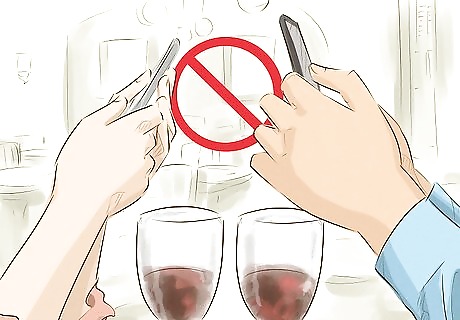
Ditch the tech. We live in a super-connected world, but ironically, this can actually cause you and your boyfriend to feel more distant from each other. You aren’t really communicating if you’re both on your phones or computers all the time. Commit to having some time for just the two of you: no phones, no computers, no video games. It’s really easy to pick up your phone without even realizing you’ve done it. If this is a problem for you, try putting your phone somewhere else, like a box by the door, when it’s your “no-tech time together.” If you don’t live together, try talking on the phone or over Skype in addition to texting. A lot of communication involves non-verbal cues, like tone of voice, gestures, and facial expression. All of this is lost in texts. Try to chat for a least a few minutes as close to “in-person” as you can each day. This will help build a connection and make him want to continue that intimacy that you showed with him in the beginning.

Adjust your routines. Remember when you first started dating, how every date was something new? And you were so excited to see each other that you could barely wait until date night? If you’ve fallen into a “rut” in your relationship, varying up your routines together can make both of you feel more excited to spend time together. Try something new. Trying new things together, whether it’s a new restaurant or a new hobby, will help you bond over the experience. It will also expand your “toolbox” of fun stuff to enjoy together. Switch up your current routines. For example, if you love movie nights, see what you can do to make them more fun. See if an old theater is playing your favorite movie on the big screen. Check out “screenings under the stars” in the summer. Go to a dinner theater or a sing-a-long movie. Make a themed dinner for your next movie night (“Goodfellas” and spaghetti, anyone?).

Find things you both love to do. These don’t have to be huge. Even if it’s just working on homework at a coffee shop together, spending quality time together can help you feel more connected.

Make sure your boyfriend has time to himself. Relationships work best when both people maintain some separate interests and spend time on their own or with their own friends. Both of you need to have an identity that doesn’t revolve around the other person. No one likes to be constantly watched or hovered over. This shows him that you trust him. If you let him know he's earned your trust, he's actually less likely to throw that trust away. If you don't trust him to be responsible on his own, he could be more likely to betray that trust just because he resents not being trusted. No matter how much you love each other, no one person can meet every single need the other person has. Spending time with other friends and having outside interests helps both of you stay happy, healthy, well-rounded people. It also makes the time you spend together extra-special.
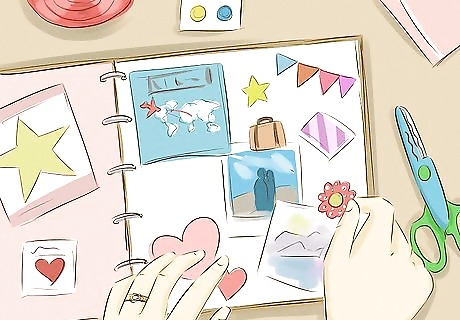
Personalize your gifts and outings. Especially if your boyfriend enjoys getting gifts or surprises, making them really personal shows that you know him better than anyone else and you really pay attention to his needs and preferences. Think about the things your boyfriend would love to do/get, and use that as a guide. Does your boyfriend like sports? Is he an adrenaline junky? Get the two of you a pair of tickets to a local football, basketball, or soccer game. Take him to an amusement park and ride as many roller coasters as you can in three hours. Is your boyfriend the hopeless romantic type? In touch with his sensitive side? Get him an old Philip Larkin or John Keats book of poetry and inscribe something on the cover: "With all my heart — the love that flows through these words is meant just for you." Is your boyfriend the outdoorsy type? Take him on a camping trip and snuggle up with him in his sleeping bag. Or maybe take him whale watching or bird-calling in your local Audubon Society.
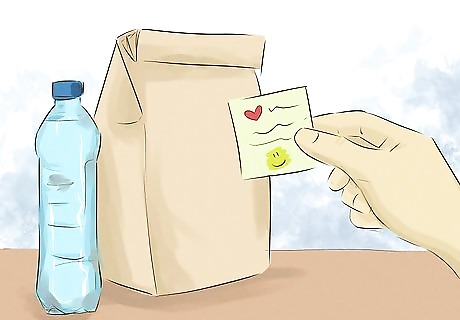
Leave a thoughtful short note in his lunch kit or shirt pocket. If your boyfriend really appreciates supportive language, try leaving him a little note. Whether it’s straightforward, humorous, or even outright wacky, these little reminders can show you care. Gauge your note to what makes your boyfriend feel most comfortable. If he’s a little squeamish about gushy feelings, write him a playfully funny note. If he loves sincere expressions of feeling, tell him how much he means to you. Humans quickly get used to even positive things in their lives. This is called “hedonic adaptation.” Make sure you don’t leave so many notes that they stop being meaningful. Too much of a good thing really is still too much.

Show your affection. Displays of affection are especially important if your boyfriend feels most loved and supported through physical contact. Don’t do anything that embarrasses him, but let him know you think he’s adorable. Check out what your boyfriend likes. He may love it when you nibble on his neck, or he may hate it. Knowing what makes him feel loved and what turns him on will help you display your affection in healthy ways. Dressing in “sexy” clothes for your boyfriend can add a little spice to your relationship. Find out if he has a fantasy or something he finds hot and do something special every now and then. He will be more than happy to return the favor. Remember that there are other ways to show physical affection than sex. Try holding hands, hugging, kissing, and cuddling, too. It’s good to have a variety of ways to show your affection for each other. Don’t take it personally if your boyfriend isn’t into the same physical displays of affection that you are. People are different.

Hang with his friends sometimes. It’s important for the two of you to have separate interests and your own friends, but it can also strengthen your relationship to spend time with each other’s friends, too. A common problem in new relationships is that you start spending more time with your new boyfriend and less time with your friends. This can cause your friends to feel neglected, and it can also put strain on your relationship. Integrate your boyfriend into your social circle by inviting him out once in a while. Go out with his friends once in a while, too.

Make a date and go somewhere you can talk and relax. Have a quiet dinner, for example, and let your boyfriend know how much he means to you. Let him share some of his opinions and his feelings. Really listen to what he has to say, but offer comments to make the conversation flow. Clear some things up if you need to. Go on dates that you think he would appreciate. Think of activities where you both can be close together such as: a boat ride, a nature hike, a trip to the zoo, a train trip, a day trip to a nearby town, etc.

Play hooky together. Take a day off. Do something totally unexpected, like making music together and recording it. Take advantage of your new found freedom, even if it's just a day, and live like you've got one day to love. Making memories together will give you something to reminisce about later. Research shows that remembering fun experiences you had together later will help you feel more bonded to each other.
Gaining a Deeper Understanding of Your Boyfriend
Learn about how you both show and appreciate love. According to some, people have common ways that they use to show love to others, as well as how they interpret demonstrations of love. Knowing how your partner communicates and notices love allows you to show your feelings in the way that the other person will most strongly connect with. If you and your boyfriend have different ways of showing that you care, some of those signals may be lost if you don't realize how many amazing ways there are to show affection! Here are a few for you to consider: Supportive language: Sharing kind words that show how much you care about and appreciate your boyfriend Physical contact: Expressing your affection in a tangible way, like a hug or a touch on the shoulder Getting presents: Buying or making your boyfriend something to show that you're thinking of him Making time for him: Setting aside time during the week when you can completely focus on your boyfriend Helpful favors: Doing something for your boyfriend that you know will make his life a little easier
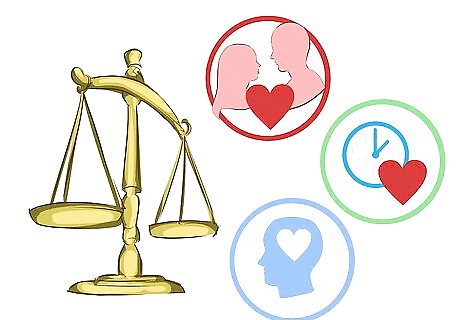
Find a balance between intimacy, commitment and passion. These three components make up Robert Sternberg's theory of love. Although psychologists have varying opinions, in general, romantic “love” is the drive you feel toward feeling intimacy and commitment with a particular person. Passion, or lust, is sexual desire, which may or may not be limited to one person. In relationships, lust is often the instigating feeling: when you find someone hot, you become interested in pursuing them. Love requires time to develop and thrive. In relationships, it’s natural for both of these feelings to have ups and downs. In the beginning of a relationship -- often called the “honeymoon phase” -- it’s very common for lust to be at a peak: both of you can’t keep your hands off each other and you’re obsessed with how sexy the other person is. This is great, but it’s also natural for this phase to fade as you spend more time together and get to know each other more deeply. After the initial burst of lust fades, you may find that you’ve been idealizing your boyfriend thanks to chemicals in your brain going a little crazy. When that pedestal comes crashing down, you’ll start noticing things that annoy you, like how he flosses in front of you or checks out his groceries at the store differently than you do. This is normal. It’s where the “love” comes in. Love gives you the patience to ignore the little annoyances because you really dig this guy. This doesn’t mean lust has to disappear once you’ve been dating a few months. Take some time to explore what turns both of you on. Communicate your sexual needs to each other. Spice up your routines. Have fun with each other!
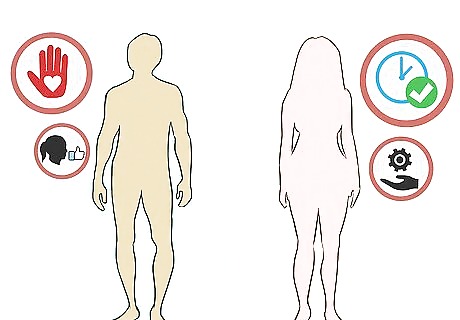
Recognize that people have different communication styles. Even people of the same gender can have very different communication styles. Whether you’re LGBTQ or straight, if it feels like you and your boyfriend are sometimes speaking different languages, it could be because your communication styles aren’t the same. There’s nothing inherently “better” about one way or the other, but it’s helpful to understand how both of you communicate. Some people are affiliative communicators. Affiliative communicators enjoy asking others for feedback. They tend to prefer collaboration, and may see challenges or disagreement as signs of aggression or hostility. If you prefer to listen to all sides, avoid conflict, approach issues collaboratively, and speak up less rarely, you may be an affiliative communicator. Some people are competitive communicators. Competitive communicators tend to be direct, assertive, and okay with presenting challenges. They like to gather information and make their own decisions. They often prefer to be in charge. If you speak your mind readily, feel comfortable with conflict, and prefer to make decisions on your own, you may be a competitive communicator. People can also vary in terms of their directness. Some people are comfortable with direct communication, such as “I want to spend more time together.” Others are more comfortable with indirect communication, such as “It’s fun when we spend time together. It’s too bad we don’t do it more.” Either form can be appropriate, depending on the situation. The important thing is to listen to each other and clarify when you don’t understand. Having different communication styles doesn’t mean your relationship is doomed. It just means you need to know what differences can cause tension between you, and both of you need to commit to flexibility and compromise.


















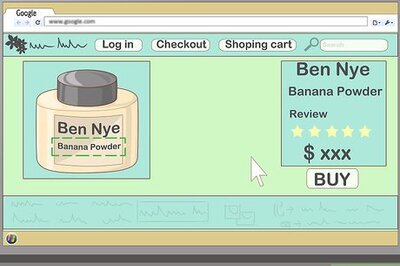

Comments
0 comment